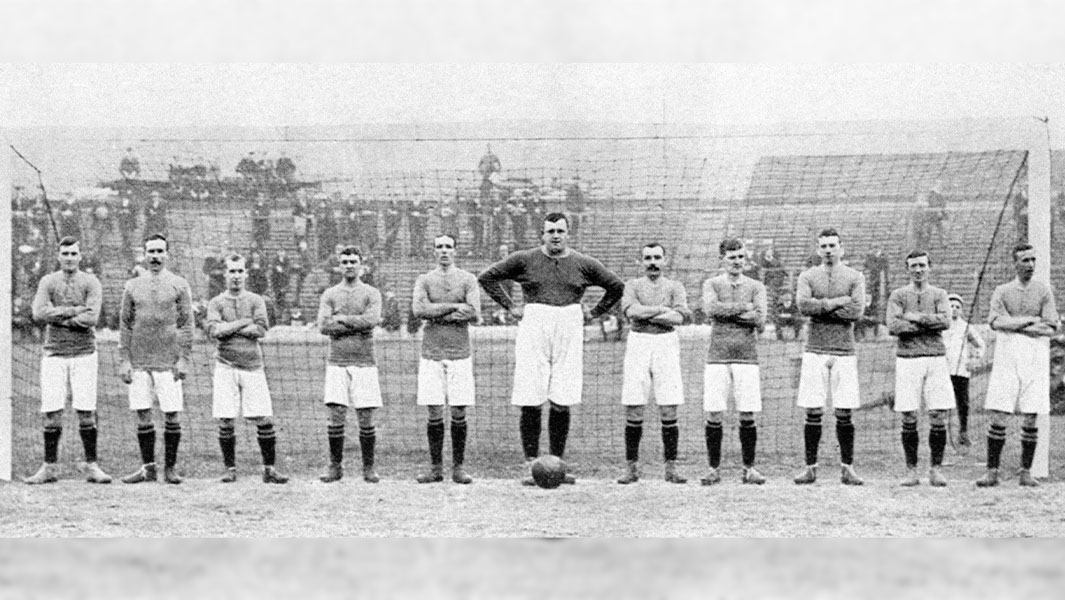How heaviest goalkeeper William Henry "Fatty" Foulke changed football forever

William Henry “Fatty” Foulke became a football legend while breaking down stereotypes about what professional players should look like.
Proving that the beautiful game is for anyone and everyone who fancies a kick-about, the athlete is the heaviest goalkeeper (football) in history.
Some people even believe that the football fan chant “who ate all the pies?” was first sung at Foulke.
And while that and his nickname seem rather mean, he really wasn’t fazed by any of it.
@guinnessworldrecords Heaviest goalkeeper ⚽️ 165 kg / 363.7 lb / 26 st - Willie Henry 'Fatty' Foulke 🇬🇧 #LearnOnTikTok #GWRoriginals ♬ original sound - Guinness World Records
The English footballer, who lived from 1874 to 1916, is best remembered for being the Sheffield United goalie, although he later played for Chelsea and Bradford City, and was also a cricketer for Derbyshire County in the 1900 season.
He stood at 6 ft 3 in (1.90 m) and weighed around 141 kg (22 st 3 lb) during his career, although reports of his weight do vary.
To this day, Foulke remains a cultural and sporting icon who These Football Times describes as one of the club’s “first prominent on-field heroes”.
The site lists hundreds of appearances for Sheffield amongst his achievements, including a First Division victory in 1898 and two FA Cups in 1899 and 1902.
A gem from the football collection showing the @SheffieldUnited team of 1898-99 celebrating an FA Cup win. The tall player at the back is giant goalkeeper and early football celebrity Willie "Fatty" Foulke. Towering over other players "Fatty" inspired many tall tales... pic.twitter.com/k48G4PdS1Z
— North Herts Museum 🌈 (@nhertsmuseum) October 30, 2020
He’d been signed by Sheffield after he was spotted playing for village side Blackwell in the Derbyshire Cup.
Foulke, who earned an England cap in 1897 in a game against Wales, was a passionate player, and even once famously chased down a referee after a match – despite being naked at the time - to question an opposition goal he believed should have been offside.
He left Sheffield behind in 1905 and transferred to Chelsea after being bought by the club for £50.
He was immediately made captain and was the club’s first-choice goalkeeper, although he was renowned for his temper, sometimes walking off the pitch if he felt like his defenders weren’t working hard enough.
#Chelsea's first Goalkeeper
— THE CHELSEA FORUM (@TheChelseaForum) July 30, 2023
William Foulke 1905 #CFC 🔵⚪️ pic.twitter.com/cZhJTMJRUU
Foulke’s time at Chelsea is also credited with the creation of the ball boy role.
It’s reported that Chelsea bosses, keen to draw attention to Foulke’s stature, stationed two young boys behind the goal.
The boys would often get bored and start running around, chasing down stray shots and returning the ball to the players, accidentally bringing the job into existence.
There are various reports pertaining to Foulke’s actions on the pitch, and some seem rather far-fetched, such as tales of him snapping a crossbar by swinging on it and picking up players on the opposing team and throwing them into the net.
Sheffield United goalkeeper Willie ‘Fatty’ Foulke watches the ball go wide during the 1901 FA Cup final. United drew 2-2 with Tottenham in front of a then world record crowd of 110,820 at Crystal Palace pic.twitter.com/c8qHteSKnH
— Historic Sports Pictures (@HistoricSports2) August 22, 2022
It’s also said that when asked about the growing list of size-based nicknames fans used for him in their chants, he said: “I don’t mind what they call me as long as they don’t call me late for my lunch.”
Foulke finished out his career at Bradford City, playing there for one year before he retired in 1908.
He died from cirrhosis of the liver in 1916 at the age of 42, but the impact he had on the game lives on.
Header image: Alamy


